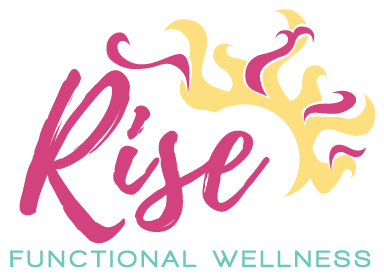Suicide Prevention Week serves the purpose of spreading awareness about suicide, the risks and ways you may be able to help prevent someone from taking their own life.
- Suicide is among the top 10 leading causes of death and is the second leading cause of death for individuals between the ages of 10 and 34 years old.
- Suicide rates have increased 35% since 1999 according to the US Census.
- Women are more likely to attempt suicide and men are more likely to succeed, meaning men use more fatal means. However, those numbers are slowly changing as women are also beginning to adopt lethal ways of attempting suicide.
If someone is an imminent threat to themselves, meaning they are high risk for committing suicide in the near future you may observe:
- Giving away belongings
- Saying their goodbyes
- Talking directly or indirectly about dying or not wanting to live
- Sudden changes in behavior or mood
- Recent/sudden loss of a job or a relationship
While there are a lot of resources about imminent suicidality, I believe it is also important to stress the longer-term symptoms.
- Social isolation- many people may isolate because they are depressed, don’t have the energy to be around others or feel as though they may be seen as a burden. Unfortunately, this can create a downward spiral causing you to feel more alone, less connected and less supported.
- Depression or other mental health disorders- proper support is necessary for mental health disorders. Some treatment may require medications while others may find therapy (or a combination) most beneficial. However, left untreated you may feel like your mental health disorders are controlling you rather than you being in the driver’s seat.
- Feelings of hopelessness- when you lack a sense of hope for a better future you may find yourself consumed with the pain, the grief, the emotions, hardships, etc. that you are experiencing in the current moment. It may feel like there is no way out and no way to get ahead of it.

From my own struggles with suicide as a teenager to witnessing the struggles of others, there are a few critical pieces I believe help prevent against suicide:
- A sense of belonging – you need to feel supported. You need to feel that there is at least one person you can reach out to at any time who will be willing to listen. We are not meant to do life alone, we are built for connection. This doesn’t mean you need a whole girl squad, but you do need people in your corner (a trusted friend, a family member, a mentor, a therapist, or all of the above).
- A sense of hope – hope for the future allows you to see that a permanent ending to your pain today is not the answer. Whether it is seeing light at the end of the tunnel, finding inspiration from others who have overcome challenges or knowing that it has to get better than this, find the hope. Even if it seems difficult to believe in the moment, I often repeat over and over again, “this too shall pass,” because if my past has proven anything it is that nothing lasts forever.
- A sense of purpose – you need to find meaning in your everyday life. Find a job, a volunteer opportunity or a hobby that is fulfilling for you. Set a goal, something to look forward to and something to achieve. Find a reason to get out of bed in the morning. It may not always be easy, but it will always be worth it.
- Self-care – We need to honor our bodies and our minds. Find some way to move your body each day. Fuel yourself with whole, nutrient-dense foods. Pay attention to the content you consume (watch, listen to and read) and how it affects your energy levels. Get out in nature and get some vitamin D. The way you treat your body affects your mind and your mind impacts how you treat your body, so choose wisely.
We all have the ability to make a difference for someone else, and for ourselves. I encourage you to do a buddy check and reach out to your friends. Check in on them, see how they are doing and ask if they need anything. If you are able, let them know that you are there for them day or night. You never know when someone may need to reach out to you for your support.
If you or someone you know needs help, call or text the suicide hotline:
1-800-273-8255
For additional resources for Suicide Prevention check out the following links:
https://www.nami.org/get-involved/awareness-events/suicide-prevention-awareness-month
https://afsp.org/national-suicide-prevention-week
https://www.nimh.nih.gov/get-involved/education-awareness/shareable-resources-on-suicide-prevention
